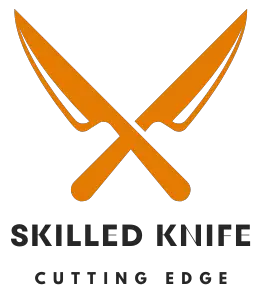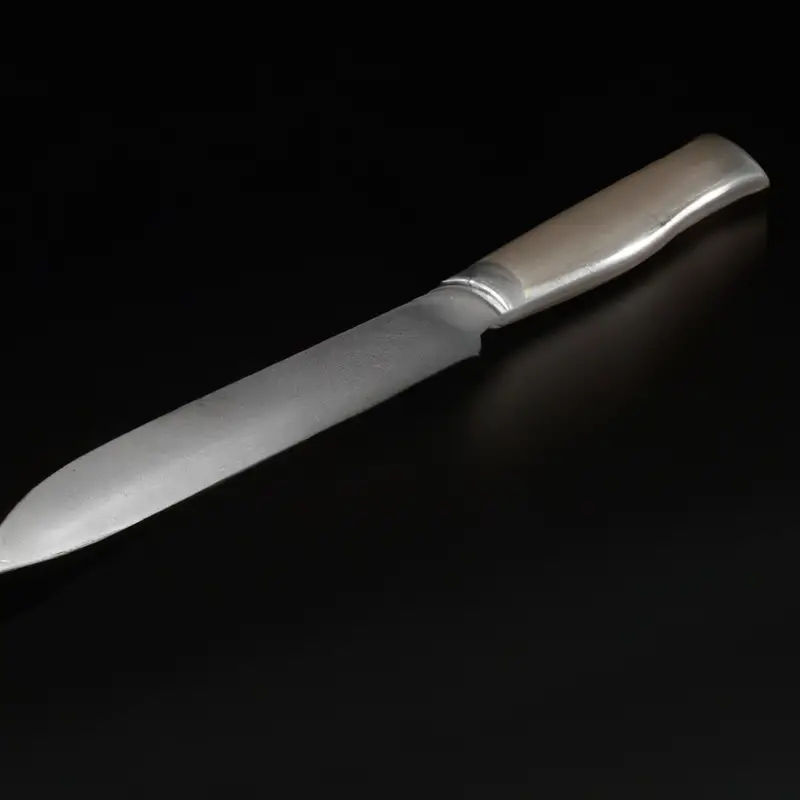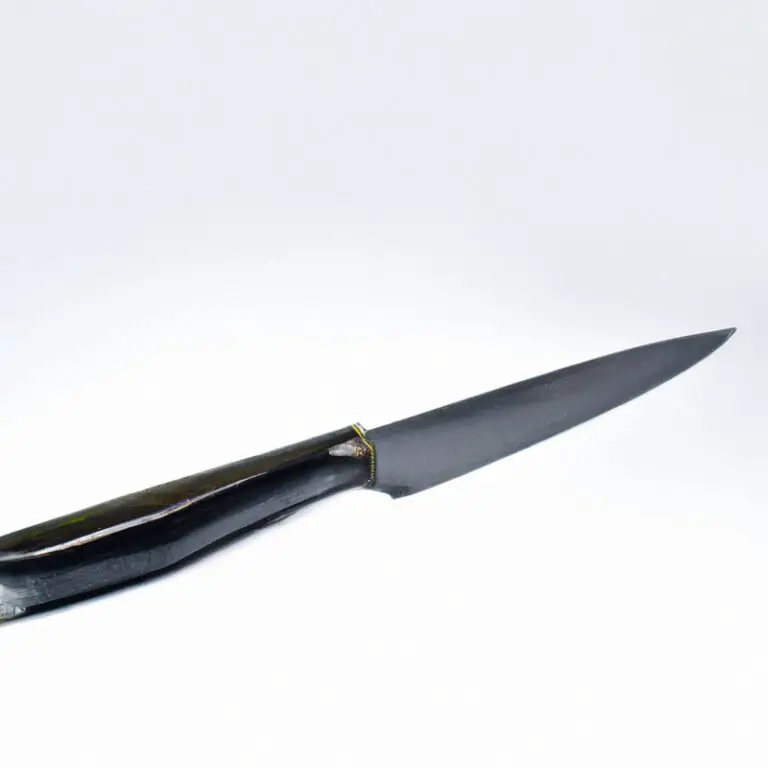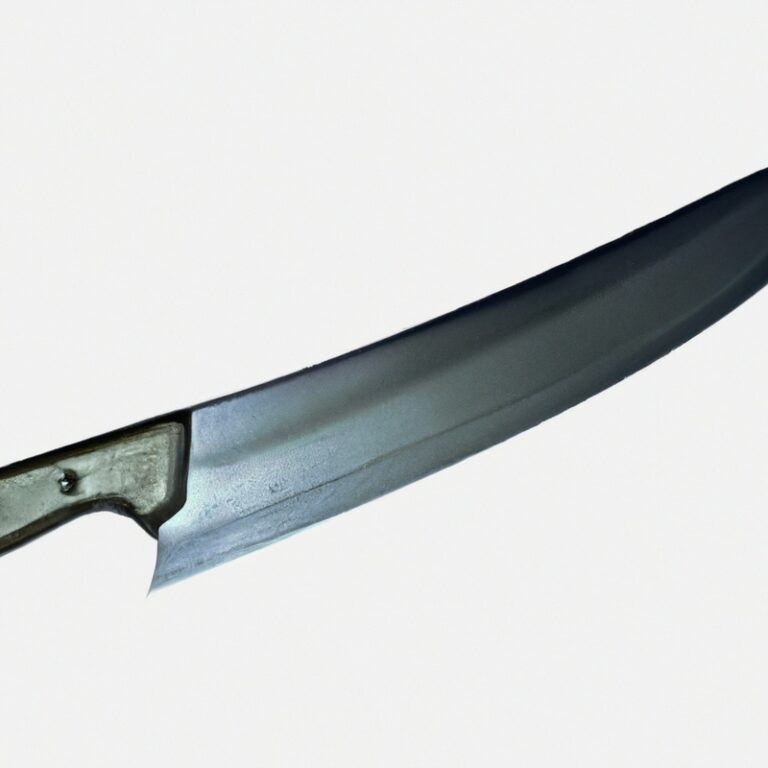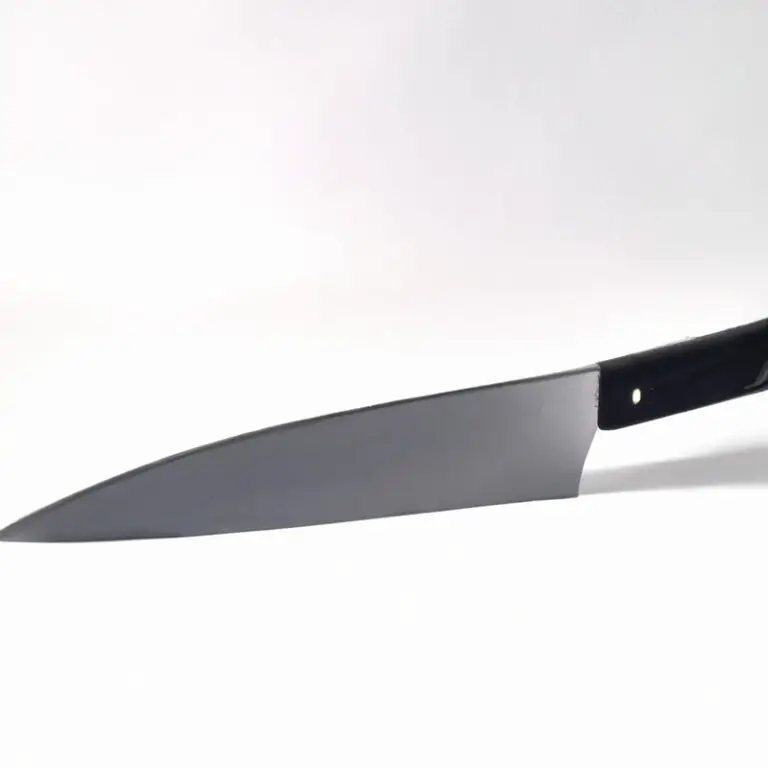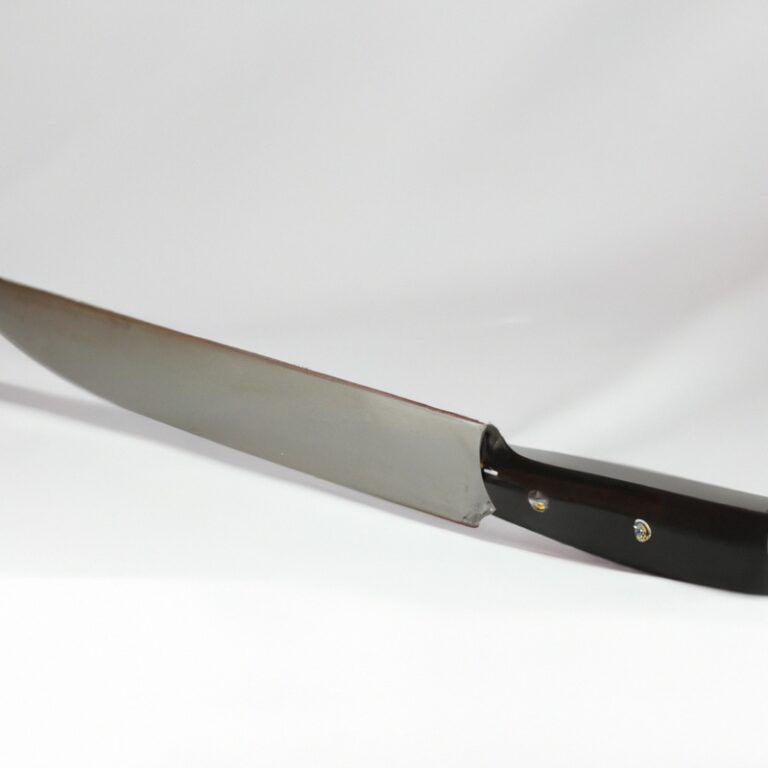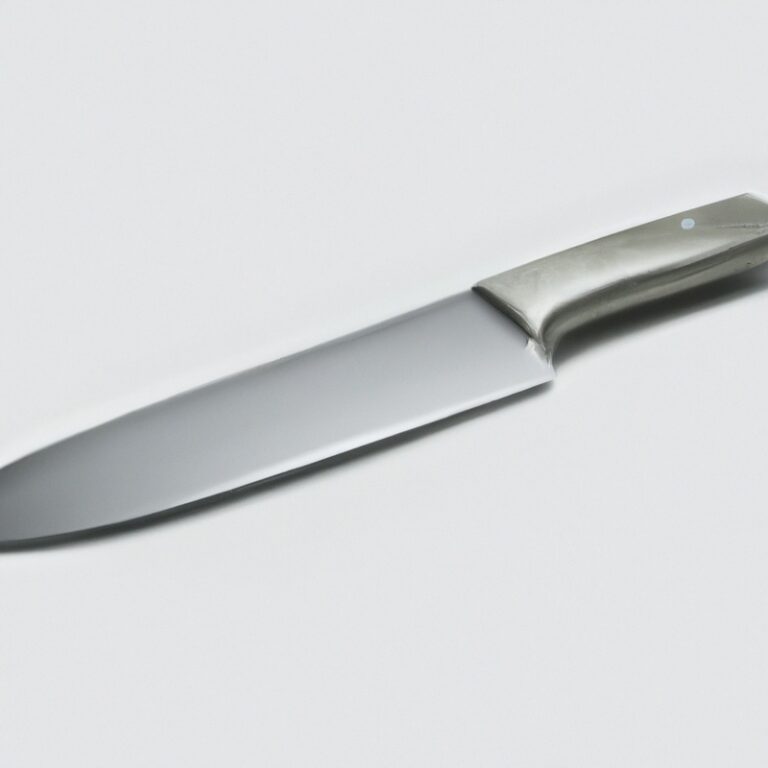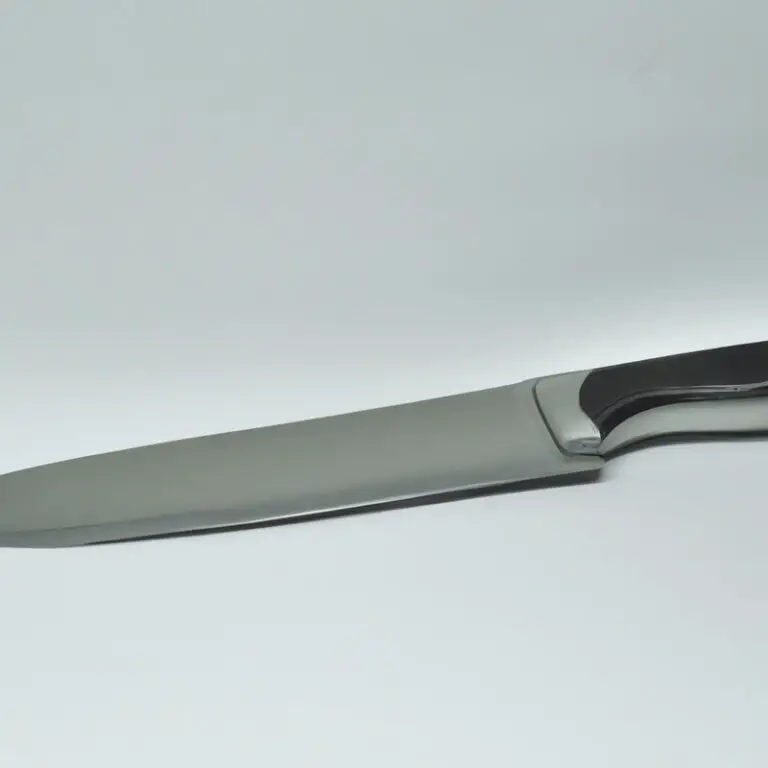Which Knife Steel Is Best For Heavy-Duty Tasks?
Key Takeaways:
- High carbon stainless steel is the most recommended choice for heavy-duty tasks.
- Knife steels with high hardness and durability perform better in heavy-duty applications.
- Damascus steel is a popular option due to its strength and resistance to corrosion.
- Overall, selecting a knife steel that balances hardness, toughness, and corrosion resistance is crucial for heavy-duty tasks.
Are you tired of flimsy knives that can’t handle the demands of heavy-duty tasks?
You’re not alone.
As someone who has experienced the frustration of using subpar knives, I understand the importance of choosing the right knife steel for tough jobs.
In this article, we’ll dive deep into the world of knife steel and explore the factors you need to consider when selecting a blade that can withstand heavy-duty tasks.
We’ll compare the properties of different steel types such as tool steel, carbon steel, and stainless steel, and highlight some popular options in each category.
Plus, we’ll provide you with valuable tips to keep your heavy-duty knife steel in top shape.
Get ready to find the perfect steel for your heavy-duty needs!
| Steel Type | Pros | Cons |
| 1. Carbon Steel | 1. Excellent strength and durability 2. Maintains sharpness for a long time 3. Easy to sharpen |
1. Prone to rust and corrosion 2. Requires regular maintenance 3. Not stainless |
| 2. Stainless Steel | 1. Resistant to rust and corrosion 2. Lower maintenance required 3. Available in various grades for toughness and hardness |
1. Relatively softer and less durable 2. Can be difficult to sharpen 3. Does not hold an edge as well as carbon steel |
| 3. High Carbon Stainless Steel | 1. Combines the benefits of carbon steel and stainless steel 2. Good strength and durability 3. Resistant to rust and corrosion |
1. Can be more expensive 2. May require more frequent sharpening compared to carbon steel |
| 4. Damascus Steel | 1. Unique and visually appealing patterns 2. Good balance of hardness and flexibility 3. Holds an edge well |
1. Expensive 2. Can be more difficult to sharpen 3. Requires special cleaning and maintenance |
| 5. Ceramic | 1. Extremely hard and sharp 2. Resistant to staining and rust 3. Lightweight |
1. Brittle and can chip or crack easily 2. Requires special equipment and care for sharpening 3. Not suitable for heavy-duty tasks that involve twisting or prying |
Factors to consider when selecting knife steel for heavy-duty tasks
Hardness and durability
When considering knife steel for heavy-duty tasks, hardness and durability are key factors to keep in mind. Hardness refers to the ability of the steel to resist deformation or wear, while durability refers to its overall strength and long-lasting performance.
High hardness is important for retaining a sharp edge, while good durability ensures the knife can withstand tough use without breaking or wearing down quickly.
Look for knife steels with high Rockwell hardness ratings and a reputation for durability to ensure your knife can handle heavy-duty tasks with ease.
Corrosion resistance
Corrosion resistance is an important factor to consider when selecting knife steel for heavy-duty tasks.
It refers to the ability of the steel to resist rust and deterioration when exposed to moisture or other corrosive elements.
A knife with good corrosion resistance will require less maintenance and have a longer lifespan.
Stainless steel is known for its excellent corrosion resistance, making it a popular choice.
Additionally, certain types of carbon steel, such as high carbon stainless steel, also offer good corrosion resistance.
Regular care and cleaning can further enhance the corrosion resistance of your knife steel.
Toughness
Toughness is a vital characteristic to consider when selecting knife steel for heavy-duty tasks. It refers to a steel’s ability to resist chipping, cracking, or breaking under stress.
You want a knife that can withstand rigorous use without compromising its structural integrity.
A tough knife steel will be able to withstand impact and force, making it less likely to fail during demanding tasks. Some key factors that contribute to toughness include the steel’s composition, heat treatment, and manufacturing process.
Consider knife steels known for their toughness, such as tool steel, which is specifically designed for heavy-duty applications.
Edge retention
Edge retention refers to how well a knife’s sharp edge stays sharp over time with regular use.
It is an important factor to consider when selecting a knife steel for heavy-duty tasks.
Some steels, such as powdered steels like S30V, offer excellent edge retention due to their fine grain structure.
High-carbon steels like D2 and 1095 also tend to have good edge retention.
To maintain edge retention, it’s essential to regularly sharpen the knife and avoid tasks that can dull or damage the edge, such as prying or using the blade on hard surfaces.
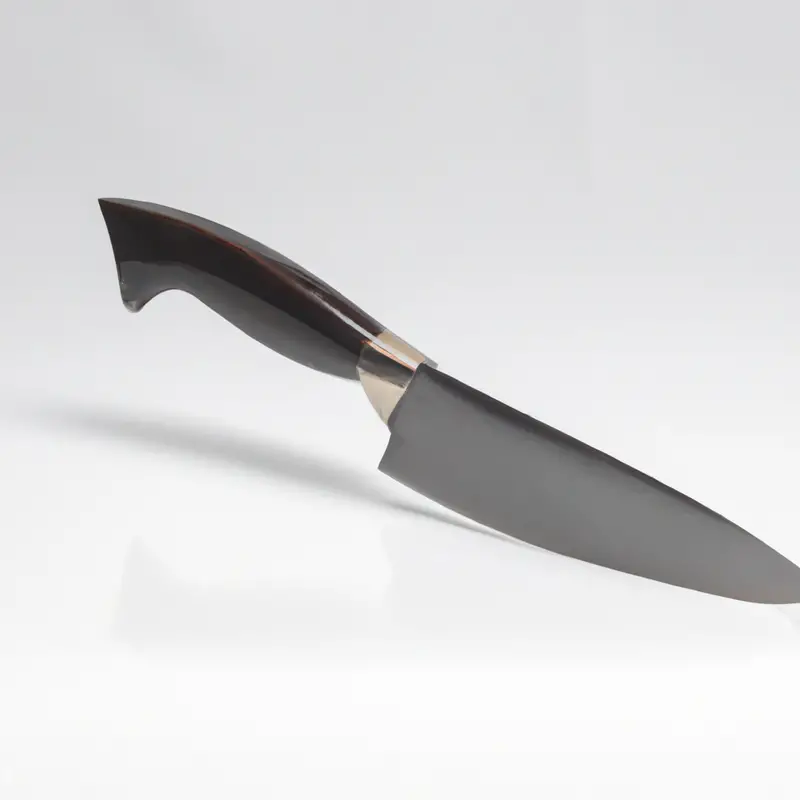
Types of knife steel suitable for heavy-duty tasks
Tool steel
Tool steel is a type of steel that is specifically designed for tools and heavy-duty applications.
It is known for its exceptional hardness, durability, and resistance to wear and abrasion.
Tool steel is commonly used in the production of cutting tools, punches, dies, and other tools that require high strength and toughness.
It can withstand heavy impact and provide excellent edge retention.
Some popular types of tool steel include D2 steel, A2 steel, and O1 steel.
These steels have different compositions and properties, allowing users to choose the best one for their specific needs.
Carbon steel
Carbon steel is an excellent choice for heavy-duty tasks. It is known for its exceptional hardness, which allows it to maintain a sharp edge even after prolonged use.
Carbon steel also offers impressive toughness, making it resistant to chipping and breaking.
Additionally, it is relatively easy to sharpen, ensuring that you can maintain its cutting performance. However, carbon steel is prone to rust and requires regular maintenance to prevent corrosion.
By properly cleaning, drying, and applying a protective coating, you can keep your carbon steel knife in optimal condition for heavy-duty tasks.
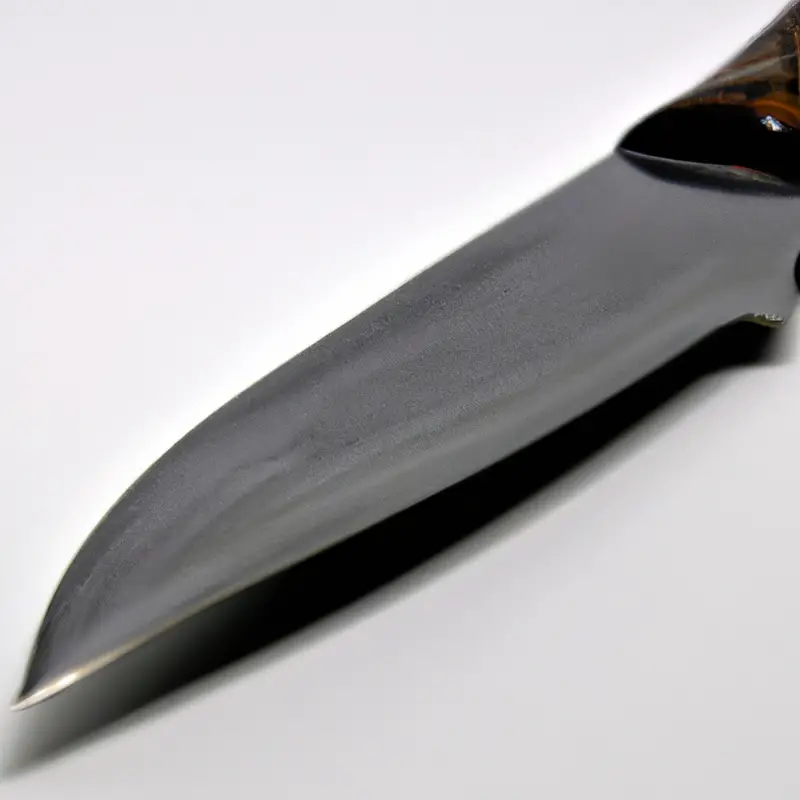
Stainless steel
Stainless steel is a popular choice for heavy-duty tasks due to its excellent corrosion resistance. It is known for its ability to withstand exposure to moisture and harsh environments without rusting or staining.
Additionally, stainless steel is durable and offers good overall strength, making it suitable for demanding tasks.
It also tends to maintain its edge well, providing good edge retention. However, it’s worth noting that there are different types of stainless steel, each with its own properties, so it’s important to consider factors such as hardness, toughness, and composition when selecting the right stainless steel for your needs.
Comparing the properties of different knife steels for heavy-duty tasks
Tool steel
Tool steel is a popular choice for heavy-duty tasks due to its exceptional strength and durability.
Its high carbon content allows it to withstand heavy use and resist chipping and breaking.
Tool steel is known for its excellent hardness and toughness, making it ideal for demanding applications such as hunting, camping, and survival.
It also holds an edge well, reducing the need for frequent sharpening.
Overall, tool steel is a reliable and robust option for those seeking a knife that can handle tough jobs with ease.
Carbon steel
Carbon steel is a popular choice for heavy-duty tasks because of its impressive properties.
It is known for its exceptional durability and hardness, which makes it suitable for demanding cutting and chopping tasks.
Carbon steel also has excellent edge retention, meaning that it stays sharp for a long time.
However, one drawback of carbon steel is its susceptibility to corrosion, so it requires regular cleaning and maintenance to prevent rust.
Proper care and frequent oiling can help extend its lifespan.
Overall, carbon steel is a reliable and high-performance option for heavy-duty knives.
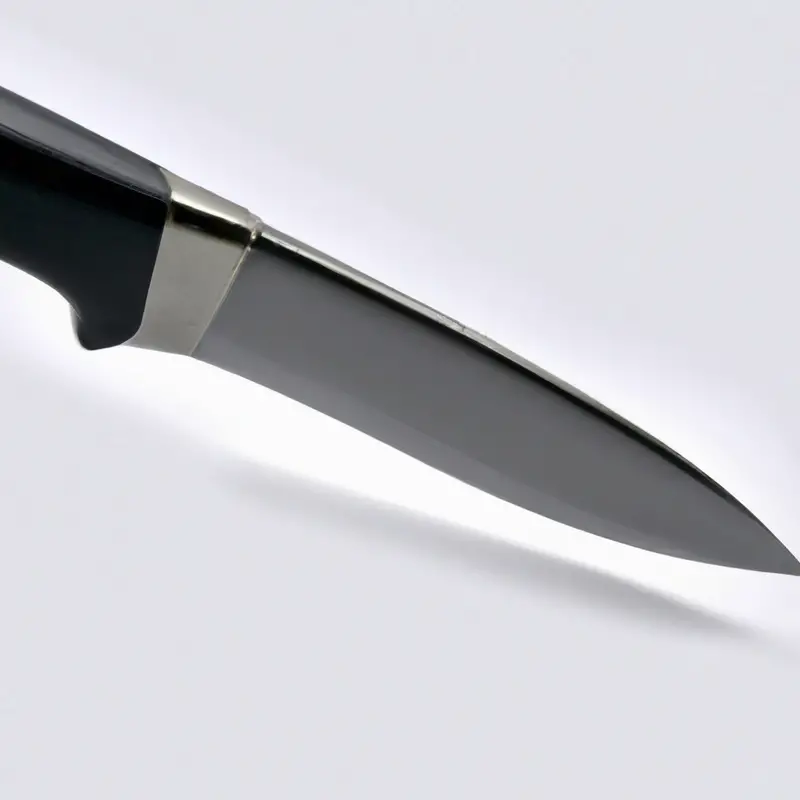
Stainless steel
Stainless steel is a popular choice for heavy-duty tasks due to its excellent corrosion resistance. It is highly resistant to rust, stains, and tarnish, making it ideal for outdoor and food preparation applications.
Additionally, stainless steel has good strength and toughness, allowing it to withstand heavy use and impact without easily chipping or breaking.
It also retains its sharpness well, ensuring long-lasting cutting performance. Overall, stainless steel is a reliable and durable option for heavy-duty tasks.
Popular knife steels for heavy-duty tasks
D2 steel
D2 steel is a popular choice for heavy-duty tasks. It is known for its exceptional hardness and durability, making it resistant to wear and tear.
With its high carbon content, D2 steel offers excellent edge retention, ensuring that it stays sharp for longer periods.
Additionally, it has good toughness, which means it can handle tough materials without easily chipping or breaking. While it is not as corrosion resistant as stainless steel, proper care and maintenance can help prevent rusting.
Overall, D2 steel is a reliable option for heavy-duty tasks that require strength and longevity.
1095 carbon steel
1095 carbon steel is a popular choice for heavy-duty tasks. It is known for its excellent toughness and ability to hold a sharp edge. The high carbon content makes it strong and durable, suitable for demanding tasks such as chopping and batoning. However, 1095 carbon steel is not stainless, so it requires regular maintenance to prevent corrosion. It is also important to keep it dry and lubricated to avoid rust. Sharpening techniques specific to carbon steel should be used to maintain its edge. Overall, 1095 carbon steel is a reliable option for heavy-duty tasks if properly cared for.
S30V stainless steel
S30V stainless steel is highly regarded in the knife community for its excellent combination of hardness, toughness, corrosion resistance, and edge retention. It is a premium steel developed specifically for high-performance knives.
The high carbon and vanadium content contribute to its exceptional hardness and edge retention.
Additionally, the chromium content provides excellent corrosion resistance. With proper care and maintenance, a knife made from S30V stainless steel can withstand heavy-duty tasks and maintain its sharpness for a longer time.
It’s a top choice for those who demand durability and performance from their knives.
Maintenance and care tips for heavy-duty knife steel
Proper cleaning and drying
Proper cleaning and drying is essential for maintaining the performance and longevity of your heavy-duty knife steel.
Here are some key tips to keep in mind.
- Clean your knife immediately after each use. Use warm, soapy water and a soft sponge or cloth to remove any dirt, debris, or residue. Avoid using abrasive cleaners or harsh chemicals that can damage the steel.
- Pay special attention to the blade. Use a gentle brushing motion to remove any stubborn stains or particles. Be sure to clean both sides of the blade, as well as the handle.
- Thoroughly dry your knife after cleaning. Use a clean towel to remove any moisture, paying attention to the handle, joints, and blade. Moisture can promote rust and corrosion, so it’s important to ensure your knife is completely dry before storing it.
- Consider using a knife oil or lubricant to protect the steel from rust. Apply a few drops to the blade and handle, then wipe away any excess. This can help to prevent moisture from accumulating and prolong the life of your knife.
Remember, proper cleaning and drying will not only keep your heavy-duty knife steel in top condition but also ensure safe and effective use for years to come.
Lubrication and rust prevention
To keep your heavy-duty knife steel in tip-top shape, it’s important to prioritize lubrication and rust prevention.
Proper lubrication can help reduce friction during use and protect against wear and tear.
Applying a thin layer of food-safe lubricant or mineral oil on the blade and pivot points regularly can significantly extend the lifespan of your knife.
Additionally, rust prevention is vital to avoid corrosion.
After each use, clean and dry your knife thoroughly to remove moisture and prevent rust from forming.
Storing your knife in a dry environment will also help prevent rust from developing.
Final Verdict
When selecting knife steel for heavy-duty tasks, there are several factors to consider. Hardness and durability, corrosion resistance, toughness, and edge retention are all important qualities to look for.
Tool steel, carbon steel, and stainless steel are the types of steel that are typically suitable for heavy-duty tasks.
Each of these steel types has its own unique properties and advantages. Some popular knife steels for heavy-duty tasks include D2 steel, 1095 carbon steel, and S30V stainless steel.
It is crucial to properly maintain and care for your heavy-duty knife steel by cleaning and drying it properly, lubricating and preventing rust, and using the appropriate sharpening techniques.
By understanding these factors and following the maintenance tips, you can ensure that your heavy-duty knife steel performs at its best. So, consider these factors and make an informed decision while selecting the best knife steel for your heavy-duty tasks.
